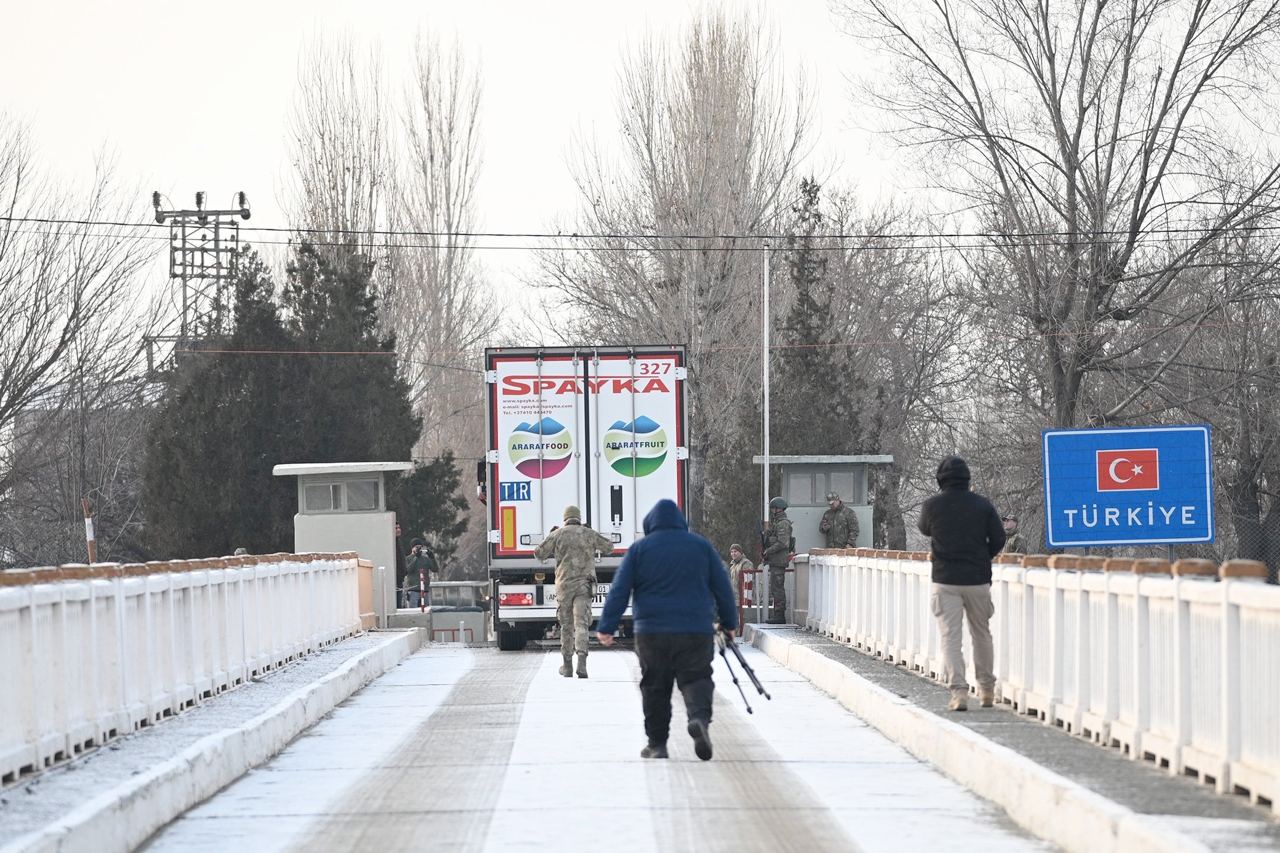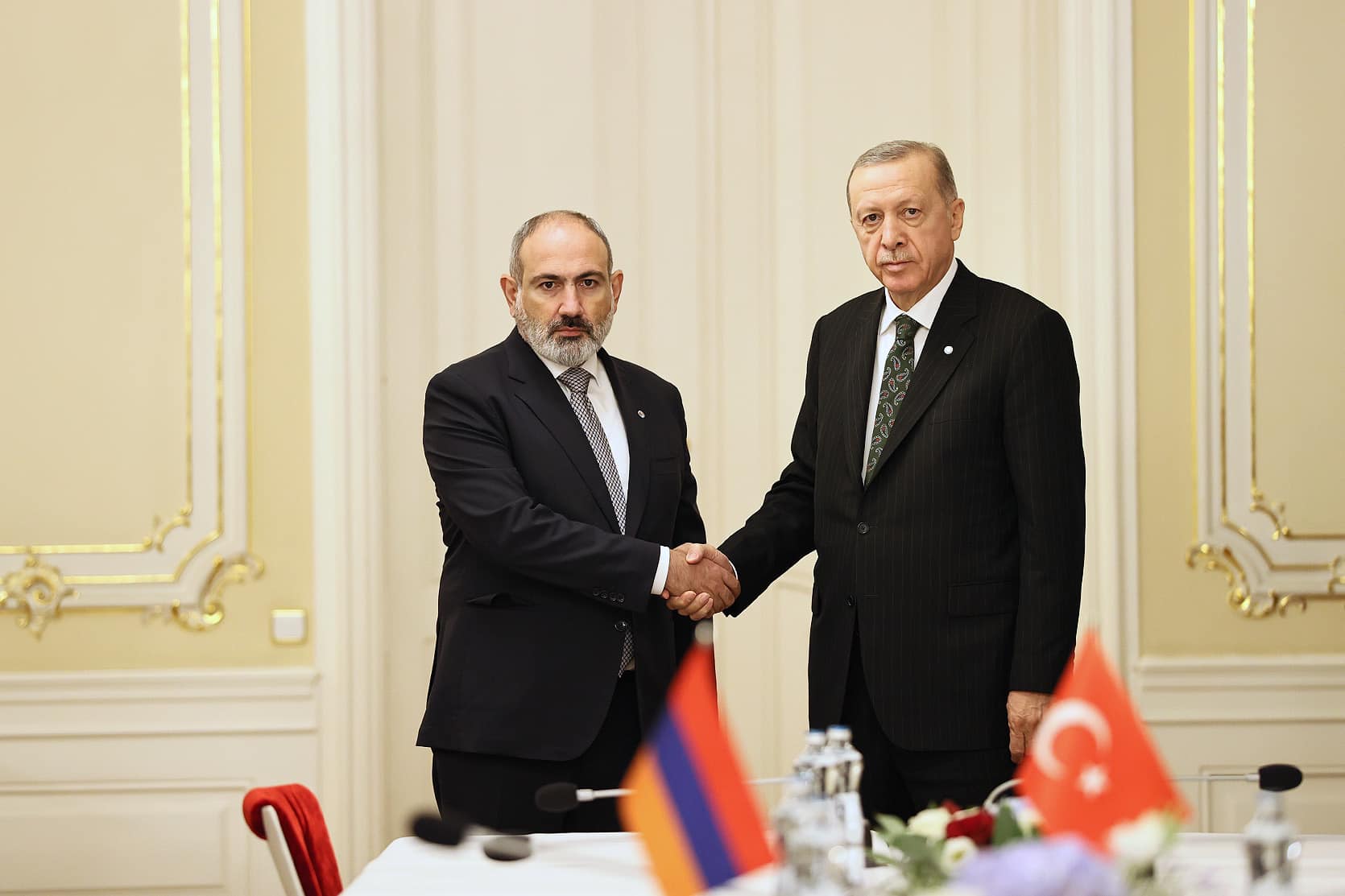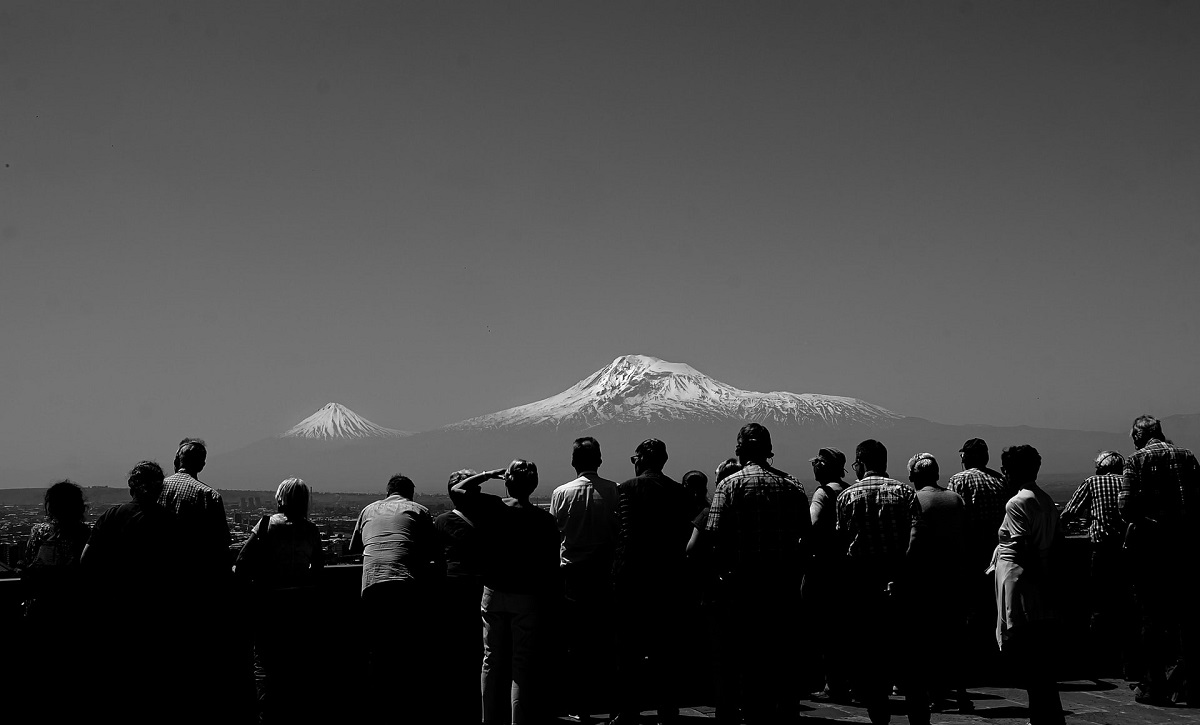Will Armenian-Turkish border reopen? Report from Armenian border village
Armenian border with Turkey in Margara
In the Armenian village of Margara bordering Turkey people are “cautiously optimistic” about a possible opening of the border. They say that “there are as many pluses from the unblocking of the Armenian-Turkish border as minuses.” Locals haven’t seen the gate open in 30 years, except in February 2023 when, after the earthquake in Turkey, Armenian trucks were allowed to cross the border and carry humanitarian aid to the victims.
After the collapse of the USSR in 1991, Türkiye officially recognized the Republic of Armenia but diplomatic relations between the two countries have not been established. In 1993 Türkiye unilaterally closed its air and land borders with Armenia. In 2021 the process of normalization of Armenian-Turkish relations began. The nations approached the issue of unblocking borders for citizens of third countries to start. And although the final decision on this issue has not yet been made, preparatory work is underway in Margara.
JAMnews tried to find out what is happening in the border zone and what locals think about the possible opening of the border. They seemed alarmed, and for the most part refused to speak to the author of the article.
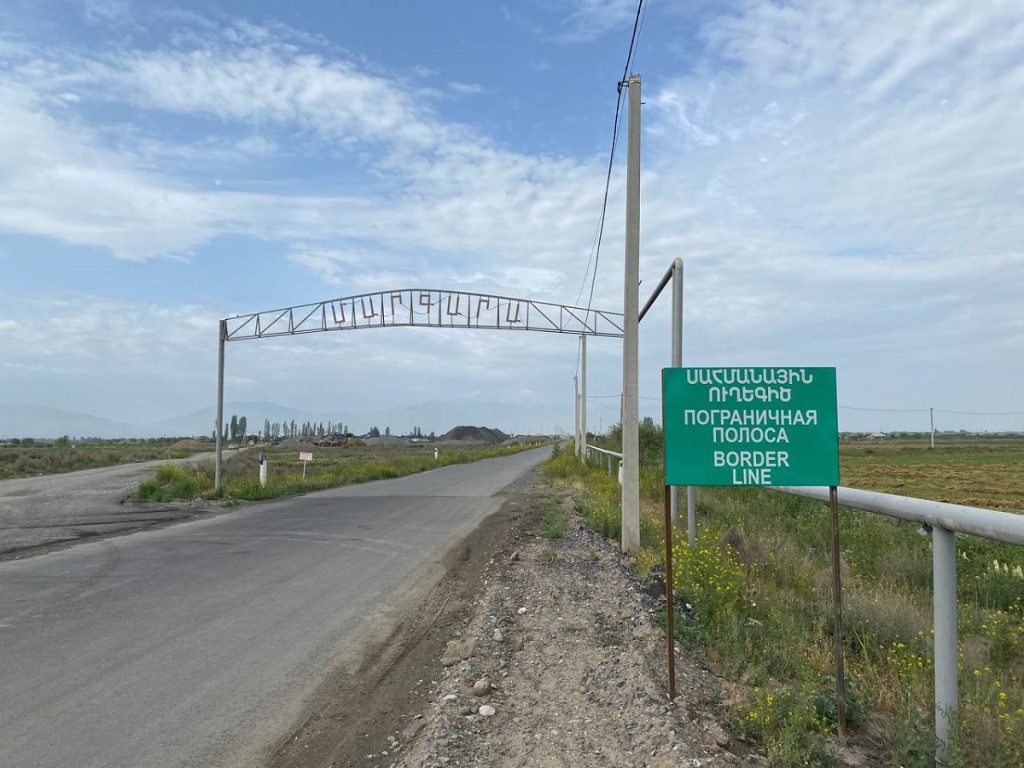
- Opinion on Armenian-Turkish relations
- “I could have found a thousand reasons not to come” – Speaker of the Armenian Parliament in Ankara
- Armenia commemorates victims of genocide in Ottoman Turkey during negotiations with Ankara
“We’ve had no problems with the Turks, but we don’t know what will happen when the border is opened”
The road to the village is now being thoroughly repaired, widened, and parking spaces are being built. The State Revenue Committee has already ordered a project for the construction of a customs checkpoint, and the local administration has allocated a hotel and about two hectares of land for this building.
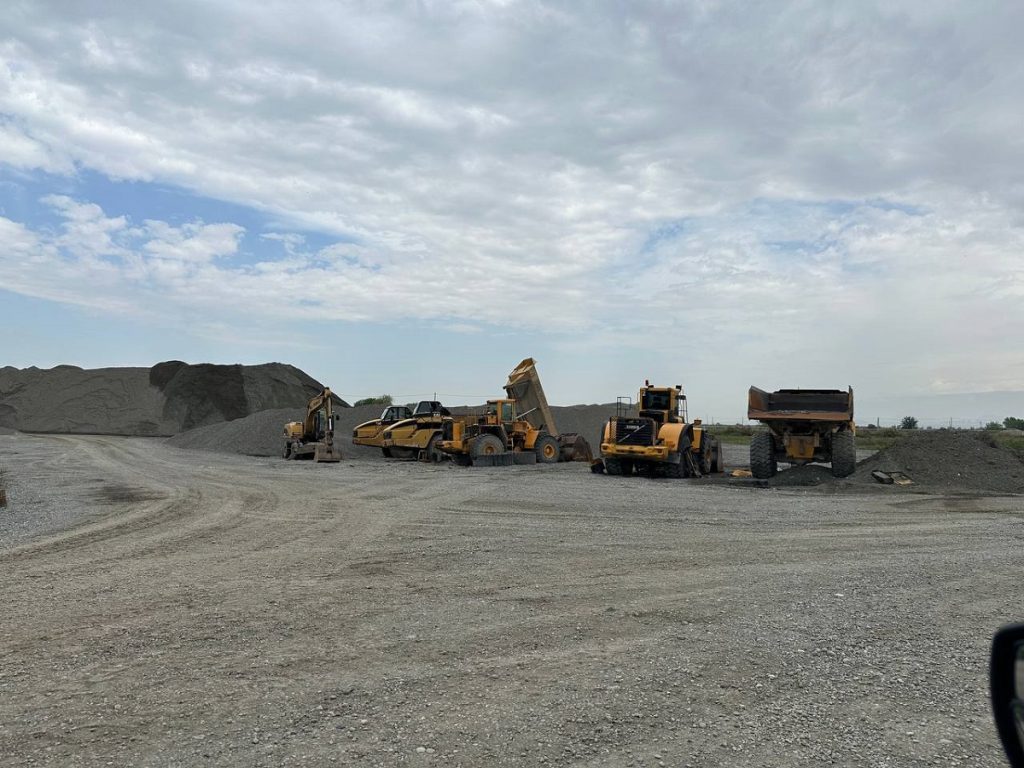
Residents of the village of Margara are in a state of expectation. We were told that in the summer the border will open for citizens of third countries and those with diplomatic passports.
-
Reference: everything about the relations between Armenia and Turkey
In 1991, after the collapse of the USSR, Turkey de facto recognized Armenia, but still refuses to establish diplomatic relations. Since 1993, Turkey has unilaterally closed its air and land borders with Armenia. Through the efforts of the world community, the air border was opened in 1995, the land border is still closed.
An attempt at normalization after the Karabakh war
Talks about the normalization of Armenian-Turkish relations intensified after the 2020 war. In December 2021, Yerevan and Ankara announced their readiness to take steps to resolve them. Countries have appointed special representatives for this process. They met four times, and there has been no significant progress on the results of the talks yet.
In July last year, the special representatives for the normalization of relations between Armenia and Turkey reached agreements:
“to ensure the possibility of crossing the Armenian-Turkish land border for citizens of third countries,
start direct air transportation of goods between Armenia and Turkey”.
On January 6, 2023, Turkey informed Armenia about the lifting of the ban on direct air transportation of goods. The first point is still not implemented.
Meetings, negotiations of leaders of countries and foreign ministers
On March 10-12, 2022, the Armenian Foreign Minister, at the invitation of Turkey, took part in the Antalya Diplomatic Forum.
On October 6, 2022, within the framework of the European Political Community summit, Armenian Prime Minister Nikol Pashinyan met with Turkish President Recep Tayyip Erdogan.
In February 2023, after the devastating earthquake in Turkey, the Armenian government sent a search and rescue team of 27 people to the city of Adiyaman in Turkey.
In addition, humanitarian aid was sent to Turkey. On February 11, for the first time since 1993, five Armenian trucks crossed the Armenian-Turkish land border of Margara-Alidzhan (Igdir) and headed for Turkey. On February 15, the border reopened for a second batch of humanitarian aid.
On February 15, a meeting of the Foreign Ministers of Armenia and Turkey took place in Ankara.
Previous failed normalization attempt
The previous attempt to normalize relations was called “football diplomacy”. It started on September 6, 2008. Then Turkish President Abdullah Gul arrived in Armenia. Together with Armenian President Serzh Sargsyan, they watched a football match between the national teams of the two countries. Then negotiations began, as a result of which, in 2009, in Zurich, the foreign ministers of the two states signed protocols on the establishment of diplomatic relations and on the principles of mutual relations. However, these documents have not been ratified by the parties.
In December 2009, Turkish Prime Minister Recep Tayyip Erdogan stated that Ankara would not ratify the protocols until the Karabakh conflict was resolved. In the Turkish parliament, the process of ratifying the document was frozen. In response, the Armenian side stated that the protocols should have been signed without preconditions, and on April 22, 2010, it was decided to suspend the process of ratifying the protocols. Five years later, the President of Armenia withdrew the Armenian-Turkish protocols from the National Assembly. And on March 1, 2018, Armenia announced their annulment.
The Turkish village bordering Margara is located at a distance of several hundred meters. The villages are separated from each other by the Araks River. If the Armenian-Turkish border is opened, all transportation will be carried out along the bridge connecting the two banks.
The villages are so close to each other that on the Armenian side, TVs pick up Turkish channels perfectly. Often there are difficulties with phone calls, as the signal of Turkish mobile operators interferes. Waking up to the Muslim call to prayer has long been common in Margara.
“I was born in this village, I am 60 years old. All this time we had no problems with the Turks. But when the border is opened, how can we know what will happen. Even if you quarrel with a neighbor, a residue remains, and you no longer communicate with him as friendly as before. So I can’t imagine how we will communicate with the Turks in a friendly way now,” Hakob Hovhannisyan, whose house is located 200 meters from the border, said.
What is positive about the opening of the border, according to the residents of Margara
The locals are dissatisfied with their standard of living. They are mainly engaged in agriculture, growing cucumbers, tomatoes, and peppers. Few have livestock; in the whole village only a few families have cows.
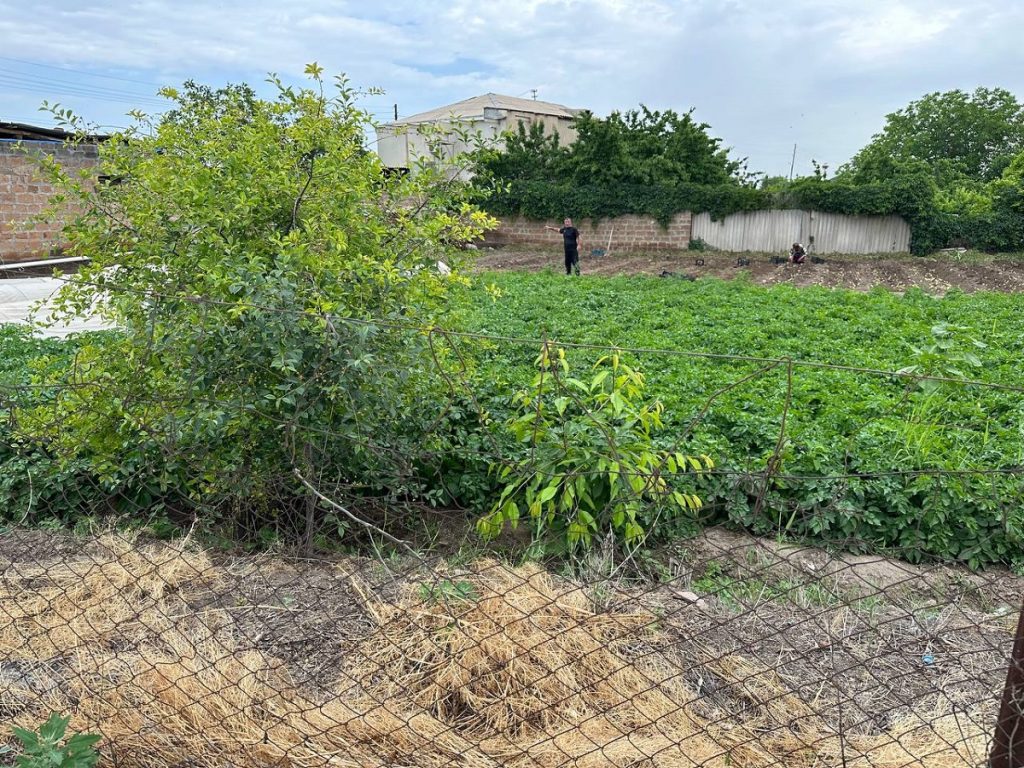
They say that they do not live in poverty only because someone from almost every family has left to work in Yerevan or Russia. They are thus responsible for supporting the entire family.
The residents of Margara believe that the positive aspect of the possible opening of the border is that trade will begin and it will be possible to earn something.
“We will go to them, they will come to us, a lot of things will become cheaper, and we and all the people will benefit from this. And everything is getting more expensive day by day. To grow tomatoes, we spend more money on chemicals and everything else than we earn on selling them,” Seda says.
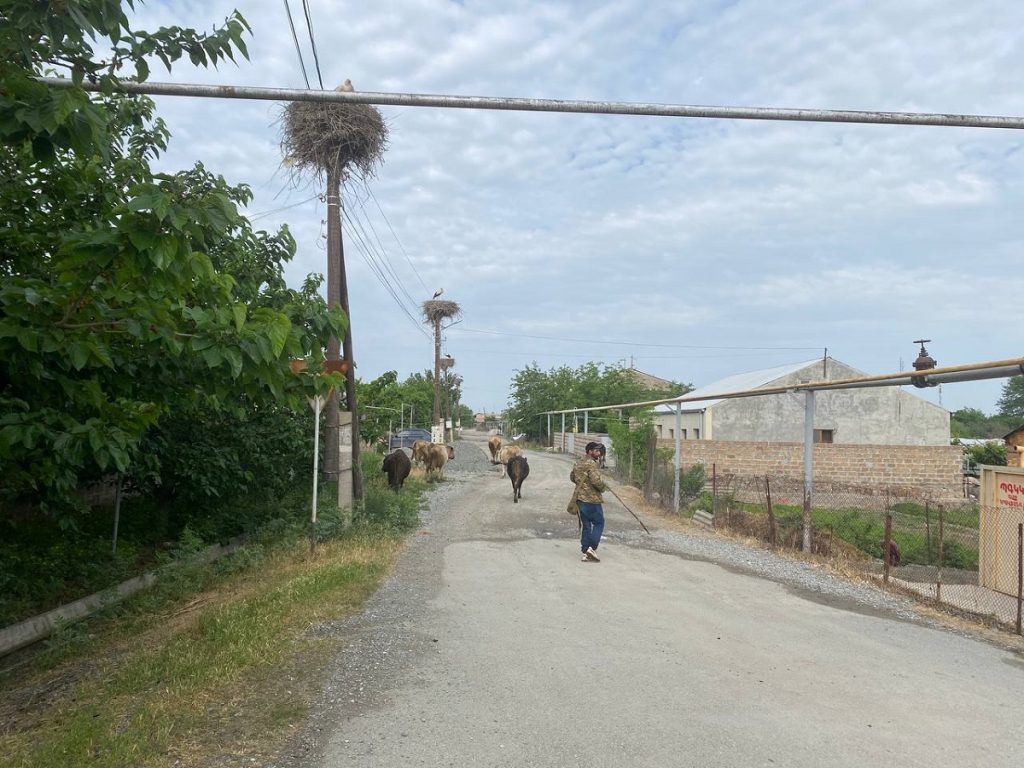
The fears of the inhabitants
Mothers are most worried. The school building is said to be very close to the border. And if it opens, it will be tense for the children.
“Now we don’t close the doors at night, we sleep with the doors open. Then we will have to lock up. We will worry, tense up – no matter what happens, the children will not be left somewhere alone. How to live peacefully in such conditions?” Hasmik Samsonyan says.
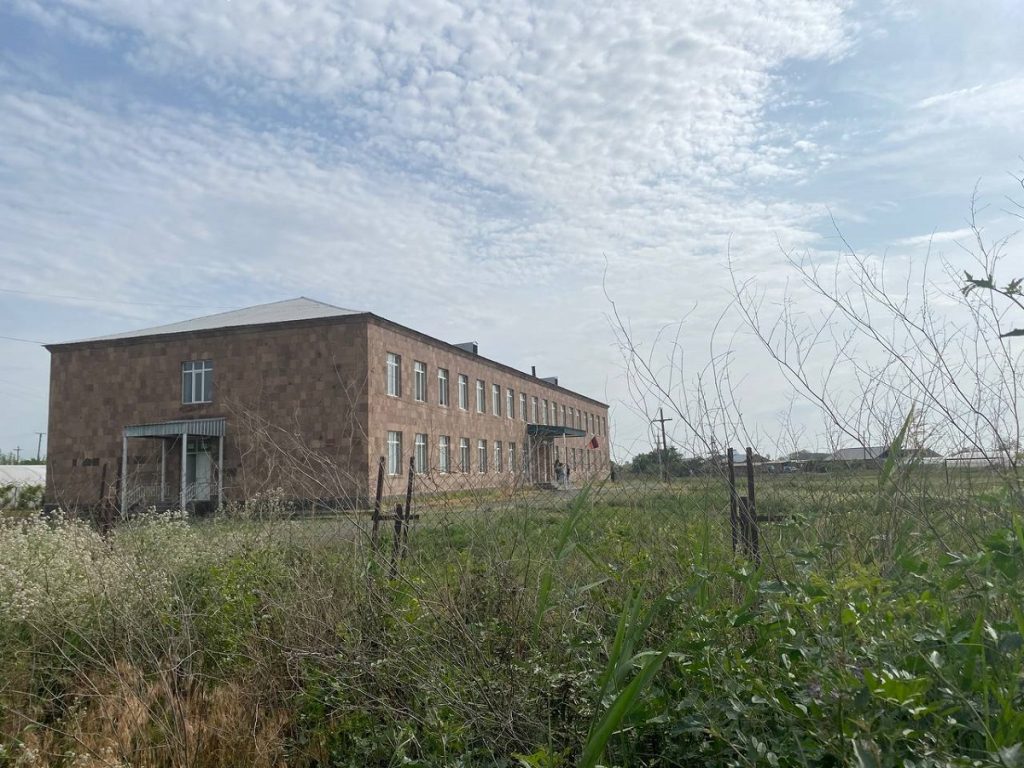
Her family’s land is located a few meters from the border. She says that every day they cultivate the land, water the trees, but they have never seen Turks.
“For the best, so be it. What will change from what I’m saying now? All the same, they [the authorities] will decide for themselves, our opinion will not be taken into account,” she adds. Diplomacy is diplomacy, negotiations are negotiations, but the villagers do not believe that the borders will open in the near future. They say that the statements of the Turkish authorities “give reason to doubt that the Turks intend to become normal neighbors for the Armenians.”
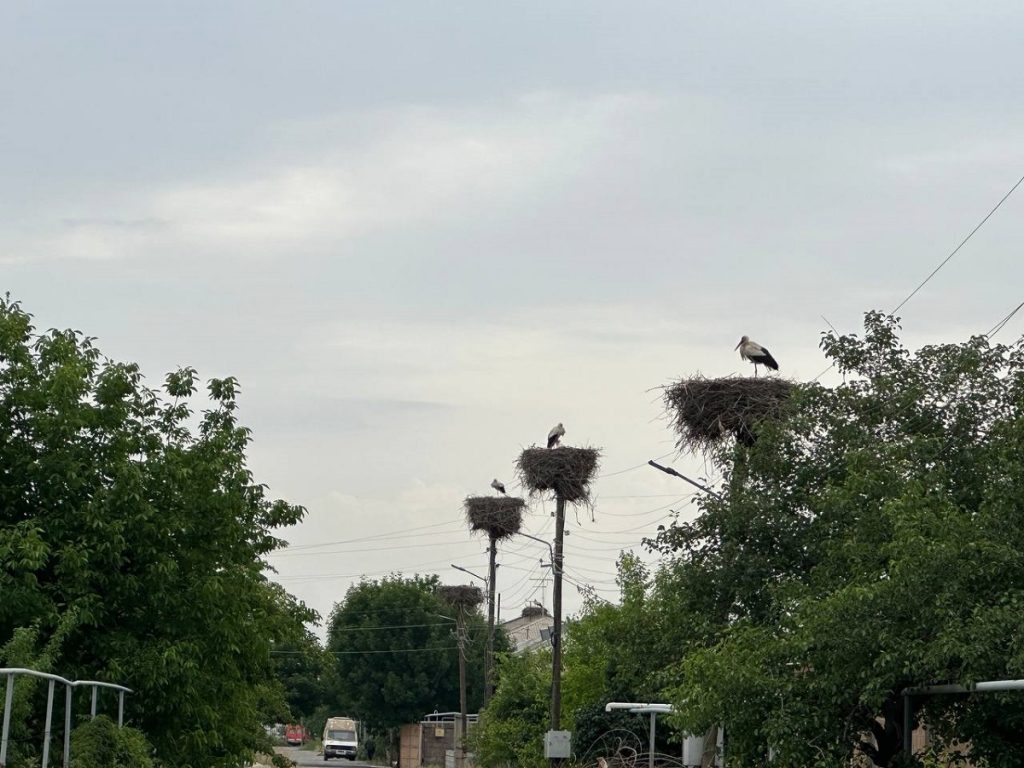
“We have not forgotten about the Armenian genocide, and now you see what is being done in Karabakh – they want to destroy people, they want to commit a new genocide. How can we open the border in such conditions? To come and slaughter us too? Open it in order to earn a couple of cents? No, this is impossible,” says one of the villagers, who asked not to be named.
Whether the border will open as a result of the negotiation process that has begun between Armenia and Turkey is still unclear. People in the village say they don’t even know what is being discussed, what agreements and disagreements exist between the parties. The inhabitants of Margara agree on one thing: it remains to wait for the decision of the authorities and hope for the best.
Armenian border with Turkey in Margara










